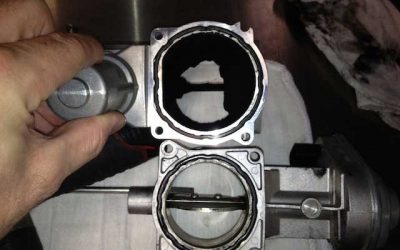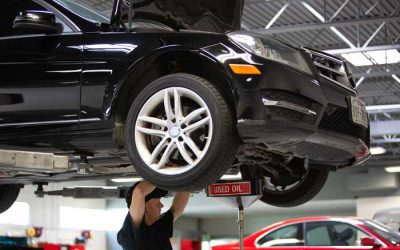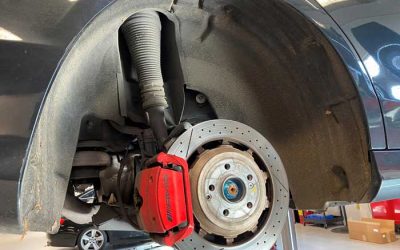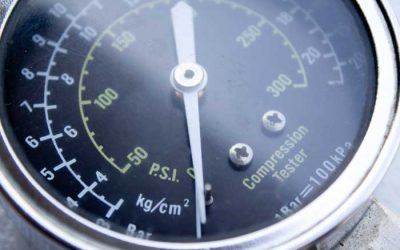Support
Looking for a solution to your car problem?
Frequently Asked Questions
How do I know if a pothole damaged my car?
Ask yourself: Is your car pulling either to the right or left while driving on a straightaway? Are you experiencing difficulty with steering the vehicle? Are your tires wearing unevenly or prematurely? Do any of your wheels have a dent? Do you have to air-up one or two of your tires frequently? If you answer yes to any of the above, then it’s possible that pothole caused some form of damage.
Why fill tires with nitrogen instead of air?
By reducing the percentage of oxygen, water vapor and other gases in your tires from 22% to 7% or lower, your tires will maintain proper pressure longer than if you use “plain old air.” For example, with 95% nitrogen in your tires, they retain optimal pressure three to four times longer.
Carbon buildup on valves - What is it & how do I clean it?
Carbon build-up is a common issue with direct-injected engines like those in modern BMW and Audi models that is an accumulation of carbon deposits on the engine cylinders’ intake valves. A carbon clean method called “walnut shell blasting” is used to safely and effectively clean carbon build-up.
What is an extended warranty & should I get one?
Nobody likes unexpected expenses for auto repairs, if you want peace of mind and like to save money, an extended warranty is a great way to accomplish both. An extended warranty is essentially a service contract between the car owner and the warranty company. According to this contract, the warranty company will pay for the covered repairs for a specific period of time. An extended warranty can help you protect yourself from unexpected repair costs.
What is the difference between Mustang Dynos vs. Dynojet Dynos?
Simply put, Dynojet numbers are usually inflated and Mustang numbers are closer to “true” horsepower numbers. Mustang dyno numbers are more accurate because it takes in to account the variables for each different car. A dynojet just measures how fast the car spins a large drum that is a certain weight and calculates HP from that. A Mustang dyno could be higher than a dynojet, but that is rare.
Why is my low coolant warning light coming on?
Your car has a floating-level which rises and falls with the coolant level in your radiator. As the level falls below a critical amount of coolant in the radiator or expansion tank, required to keep the engine from overheating, the system triggers a warning to alert you. A lot of the time, the coolant level is low because of a leak somewhere.
How long should it take for my car to cool down?
If your car is parked under the sun all day, the temperatures are most likely well over a 120 degrees Fahrenheit. Presuming your car’s A/C is working properly, it should take around 5 to 10 minutes before you can start feeling comfortable. Read more below to find out the quickest way to cool down your car’s interior.
What are the benefits of frequent oil changes?
Simply put, frequent and routine oil services for your European car are one of the most inexpensive ways to ensure that your investment has a long-living power plant under the hood. Never skip an oil change!
When should I get my oil changed?
Proactive maintenance = a healthy car!
At AUTOSCOPE, one of our core beliefs is that being proactive towards car repair and service prevents break downs and helps to reduce unexpected repair costs. By performing proactive maintenance and inspecting the vital systems on your car regularly, this will show those early warning signs that a trained professional sees on a daily basis, and can spot very quickly on a routine check.
Helpful Foreign Car Owner Articles
How to Resolve Carbon Caked Intake Ports
Have you noticed reduced performance in your engine? Higher oil consumption? Overheating? If so, it’s highly likely that your vehicle is experiencing a buildup of carbon internally. Unfortunately, carbon is inevitable as it is a byproduct of combustion. Carbon buildup...
Does Motor Oil Deteriorate With Time?
When you purchase a vehicle, you’re not only signing up for the vehicle that you’ve been looking forward to driving, but you are also signing up for the responsibility of keeping up with the vehicle’s maintenance needs. One regular service that every vehicle needs is...
COVID-19 Response
Autoscope Will Remain Open We're taking extraordinary measures to safeguard the safety of our employees and customers. We value our customers and employees and trust that they will have confidence in our ability to keep them safe. As an alternative to bringing your...
How To Maintain Your Vehicle If You’re A Low-Mileage Driver
Some car owners simply don’t drive as much as the average person. Typically, low-mileage drivers are retired, work from home or commute to work via carpool or alternative means, or have a secondary vehicle that is used much less than a primary vehicle. Low-mileage...
Should You DIY The Maintenance On Your BMW?
Doing your own car maintenance can be appealing. This is especially true when you have some knowledge of cars since it can mean saving money that would otherwise be spent on labor and parts costs from your local auto service shop. But with the advantage of saving...
Should You Replace Brake Rotors And Pads Together?
Brakes in German and European cars involve more than one part - instead, there are typically two main elements that do receive the majority of the wear and tear over the lifetime of your vehicle. These two parts are the brake rotors and brake pads. Brake rotors and...
What Would Happen If You Ignored The Check Engine Light?
That pesky check engine light. It comes on at the worst of times while you’re in your busiest week. While it’s so easy to ignore your check engine light until next month when you have the time and the funds to get it serviced, it’s important to prioritize the service...
What Happens If Your Fuel Pressure Is Too High?
Fuel pressure is a surprisingly delicate aspect of your vehicle but it’s ultimately so critical to the performance and longevity of your well-loved European car. But how do you know when your fuel pressure is too high? As with most things in a car, there’s the ideal...
What Causes Poor Fuel Pressure?
Poor fuel pressure in your BMW, Audi, Mercedes or Porsche can dramatically affect the performance that you’re used to in your vehicle and lead to long-term damage if left without diagnosis and repair by a trained European car mechanic. A bad fuel pressure regulator...









